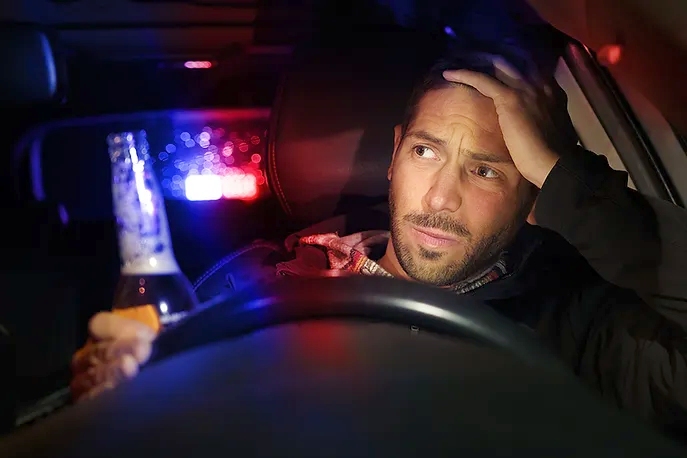Being pulled over for suspicion of driving under the influence (DUI) is a situation that demands quick thinking, informed decisions, and a clear understanding of your rights.
This critical moment can have significant legal and personal consequences, making it essential to be well-prepared. In this guide, we’ll explore the invaluable insights provided by legal and law field experts, presenting the top tips to follow if you’re stopped for a DUI.
Whether you’re a seasoned driver or finding yourself in this situation for the first time, these expert-recommended tips offer crucial guidance to navigate the complexities of a DUI stop.
Expert Tips If Stopped for DUI: Navigating a Critical Situation
What to Do if You Get Pulled Over for a DUI? – Most people will need help to answer.
The consequences of a DUI charge affect your driving record, insurance rates, and even legal penalties. In this critical situation, knowledge is your greatest ally.
To help you navigate the complexities of a DUI stop, we’ve compiled the top 10 expert tips from legal professionals and law enforcement authorities.
1. Remain Calm and Cooperative
Stay calm and cooperative if you’re pulled over for a suspected DUI. Keep your hands visible and follow the officer’s instructions. Avoid any sudden movements that might raise suspicion.
2. Invoke Your Right to Remain Silent
Inform the officer that you wish to exercise this right until legal counsel is present. This prevents inadvertently saying something that could be used against you later.
3. Avoid Field Sobriety Tests
You’re not legally obligated to perform field sobriety tests. Politely decline these tests, as they are subjective and can be used against you. They’re not always accurate indicators of impairment.
4. Decline Preliminary Breath Test (PBT)
In some jurisdictions, you can decline a preliminary breath test (PBT) without facing a license suspension. Consult local laws and regulations, as PBT results are often less reliable than official breath tests conducted at a police station.
5. Comply with Chemical Tests at Police Station
Once arrested, comply with chemical tests (breath, blood, or urine) at the police station. Refusing these tests could result in automatic license suspension and other legal consequences, depending on your jurisdiction.
6. Be Mindful of Your Statements
When interacting with law enforcement, be cautious about what you say. Avoid admitting guilt or making self-incriminating statements. Provide your identification and other requested information, but remain selective in your responses.
7. Request Legal Representation
As soon as you’re able, request legal representation. An attorney experienced in DUI cases can guide you through the process, protect your rights, and advocate for your best interests.
8. Document the Stop
If possible, discreetly document the stop using your smartphone. This could include recording conversations, taking photos, or noting any potential irregularities that may later support your case.
9. Respectfully Decline Searches
You have the right to decline a search of your vehicle without a warrant. Politely express your refusal, but do not physically resist a search if the officer proceeds despite your objection.
10. Seek Expert Legal Advice
After the incident, consult with a DUI defense attorney specializing in this law area. They can assess the details of your case, build a strong defense, and guide navigating the legal process.
What Is The Most Common Sentence For A DUI?
The most common sentence for a DUI (Driving Under the Influence) offense can vary significantly based on jurisdiction, the specific circumstances of the case, prior criminal history, and local laws.
However, some general trends can be observed.
For first-time DUI offenders with no aggravating factors, common sentences may include:
- Fines: First-time DUI offenders often face fines, which vary based on the jurisdiction and local laws. Fines can range from a few hundred to several thousand dollars.
- Probation: Many first-time offenders are placed on probation, during which they must adhere to certain conditions, such as attending alcohol education programs, avoiding further legal trouble, and submitting to random drug and alcohol tests.
- License Suspension: A common consequence of a DUI conviction is suspending the offender’s driver’s license. The duration of the suspension can vary based on the jurisdiction and the offender’s blood alcohol concentration (BAC) at the time of arrest.
- Alcohol Education Programs: Many jurisdictions require first-time DUI offenders to complete alcohol education programs. These programs aim to educate offenders about the dangers of drunk driving and alcohol abuse.
- Ignition Interlock Device: Some jurisdictions require first-time DUI offenders to install an ignition interlock device in their vehicles. This device prevents the vehicle from starting if the driver’s BAC exceeds a certain limit.
- Community Service: Courts may require first-time DUI offenders to complete several community service hours as part of their sentence.
- Possible Jail Time: In some cases, especially if the BAC is significantly above the legal limit or if there are aggravating factors (such as causing an accident or having a minor in the vehicle), first-time DUI offenders may face a short jail time.
DUI laws and penalties vary widely from state to state and even within local jurisdictions. Therefore, if you or someone you know is facing a DUI charge, it’s crucial to consult with a legal professional who is well-versed in the specific laws of your jurisdiction. They can provide accurate information and guidance tailored to your situation.
Closing Thoughts
As we conclude our exploration of the top expert tips to follow if stopped for a DUI, it’s evident that knowledge truly is power when facing this critical situation.
The collective wisdom shared by legal professionals and law enforcement experts offers a valuable toolkit for individuals confronted with the complexities of a DUI stop.
These tips emphasize the importance of remaining composed, understanding your rights, and making informed decisions.
By invoking your right to remain silent, avoiding self-incrimination, and respectfully declining voluntary tests, you can protect your legal standing and advocate for your best interests.
Consulting with a legal professional, exercising discretion in your statements, and seeking legal representation are all strategies that contribute to a fair and just outcome.








